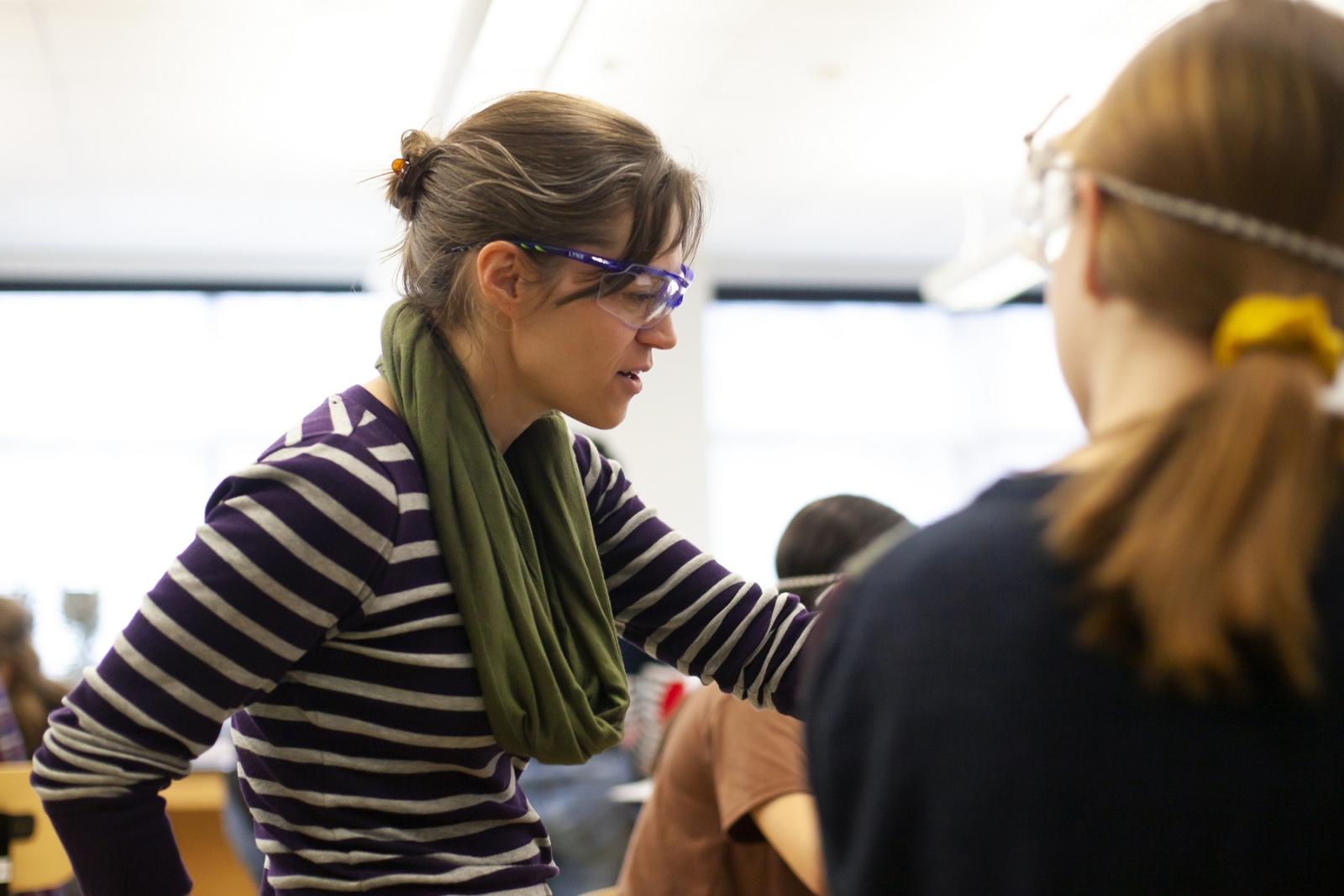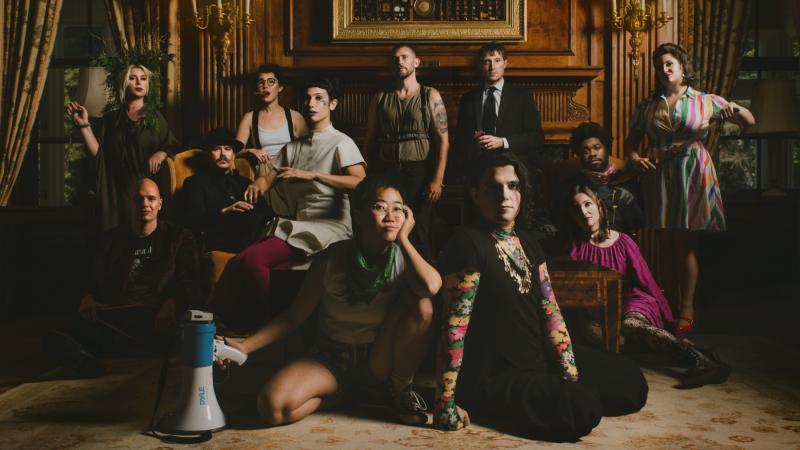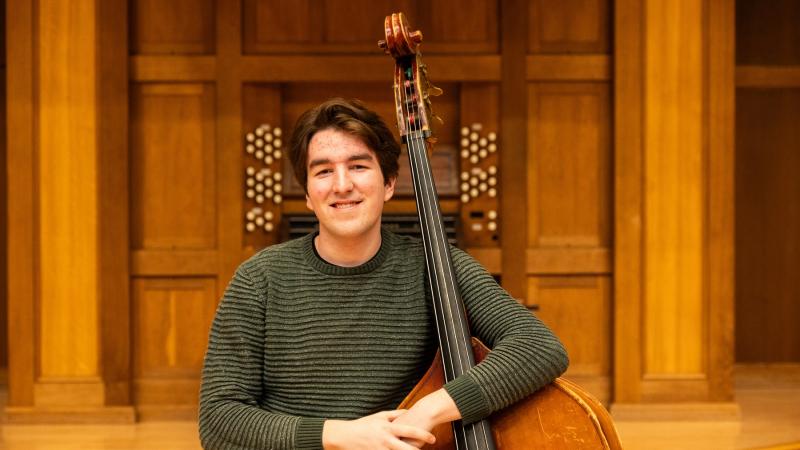Lawrence University faculty members who lead summer seminars at Björklunden get as much from the experience as they give, says Peter John Thomas, associate professor of Russian Studies.
“I always come away from these seminars refreshed and excited about teaching and learning,” he said.
Thomas is one of 11 current or emeriti faculty members on the lineup to lead week-long sessions at Lawrence’s northern campus and retreat center in Door County. They’ll join alumni and other academic, artistic, and cultural leaders in presenting more than 20 in-person seminars between early June and late August. With sessions ranging from politics and history to literature and science, participants soak in knowledge and perspective from the scholars who sign up to teach the seminars.
The full slate of summer seminars was announced in February: lawrence.edu/bjorkseminars.

The setting along the shore of Lake Michigan annually draws lifelong learners to Björklunden for summer seminars.
The Lawrence faculty members who take part do so for the opportunity to interact with adults of all ages and backgrounds who embrace the mantra of lifelong learning.
“This will be my 14th summer teaching a seminar at Björklunden,” said Thomas, leading a July 28-Aug. 2 seminar on the history of Russian film. “I now have a small but devoted following of lifetime learners who want to spend a week thinking and talking deeply about Russian culture and history. I love teaching these seminars because I know that the participants will have new ideas and unexpected questions about things that I have spent years thinking about.”
The in-person seminars led by Lawrence faculty include:
- Relena Ribbons, assistant professor of geosciences, Forests through Time, June 9-14.
- Lori Hilt, Milwaukee-Downer College and College Endowment Association Professor of Liberal Studies and professor of psychology, The Mindful Brain, June 16-12.
- Allison Fleshman, associate professor of chemistry, Chemistry of Art, June 23-28.
- Graham Sazama, associate professor of chemistry, Energy, Technology and the Environment, June 23-18.
- Garth Bond, associate professor of English, Shakespeare in Love: Romeo and Juliet, 1594-2024, July 14-19.
- Arnold Shober, professor of government, This Land is Your Land, This Land is My Land: How Maps Shape the World, July 14-19
- Danielle Joyner, associate professor of art history (teaching along with Katie Keene), From Sutton Hoo to Bayeux: Anglo-Saxon England in 10 Amazing Works, July 14-19
- Jerald Podair, professor of history emeritus, (teaching along with Jon Greenwald), Hitler’s War: The Battle for Democracy, 1939-1945, July 21-26
- Stewart Purkey, Bee Connell Mielke Professor of Education and associate professor of education, Fact or Fiction: Images of Schools and Adolescents in Hollywood Films, July 21-26
- Peter John Thomas, associate professor of Russian Studies, A Tour of the History of Russian Film, July 28-Aug. 2
- Megan Pickett, associate professor of physics, A Sky Full of Planets: Exploring the Night Sky and Our Solar System, Aug. 4-9
The summer seminars annually draw enthusiastic participants who share community, enjoy the beauty of the 441-acre retreat along the Lake Michigan shoreline, and learn about topics of interest. Some come to Björklunden as travelers, staying at the same lodge where seminars are presented and meals are served—travel with a purpose—while others are commuters attending the sessions and partaking in meals but not staying the night.
Thomas said his “students” will spend the better part of a week watching and discussing Russian films.
“I hope that participants in my seminar come away with a new sense of the richness and complexity of film in the Russian Empire, the Soviet Union, and post-Soviet cultures,” he said.
Stewart Purkey, Bee Connell Mielke Professor of Education and associate professor of education, is leading a July 21-26 seminar that explores how schools and adolescents have been portrayed by Hollywood. The subject matter is a mix of two of his favorite things—education and movies.
“The reality is simply that I love movies in general and what better thing to do than spend a summer week next to Lake Michigan talking about the movies Hollywood makes about schools and the people who teach and learn in them,” he said.
Björklunden is a special place for Purkey, in part because it’s home to the Mielke Summer Institute, which annually brings together K-12 educators from the school districts in Appleton and Shawano to explore ideas and issues of cultural and social significance through the lens of the liberal arts.
“I’m always struck by the effect that environment has on our conversations, the way the setting contributes to people’s openness to new ideas—and to each other’s—and the opportunities being there provide for quiet contemplation outside of the seminar room,” Purkey said.
Seminars generally begin Sunday evening and end Friday afternoon. The sessions typically have classroom time in the morning, with plenty of time built in for participants to walk the trails, tour the Norwegian “stavkirke” chapel, relax in the lodge, or explore other parts of Door County.
Allison Fleshman calls the seminars “a great opportunity to teach folks from all walks of life” about chemistry in a very accessible way.
“In my Chemistry of Art seminar, participants will explore what creates such vibrant colors in pigments, the reason why dye molecules adhere to certain fabrics better than others, and how the science of light helps us experience artistic objects,” she said. “I hope it helps curious folks explore the underlying beauty of the chemistry that is hiding within the artistic materials. Previous students have experimented with types of pigments and binders, made blueprints, as well as found their inner child and just played with art through a chemistry lens.”
In addition to the in-person seminars, there will be three Zoom seminars, all led virtually by professor of history emeritus Paul Cohen: Is Evil Really Banal? Hannah Arendt’s Holocaust, weekly, April 4-May 2; The Birth of Fascism, weekly, May 9-June 6; and Is Civilization Good for Us: Nietzsche, Freud, and Their Discontents, weekly, July 18-Aug. 15.
Björklunden’s lineup of fall seminars (September-October) will be announced soon.




